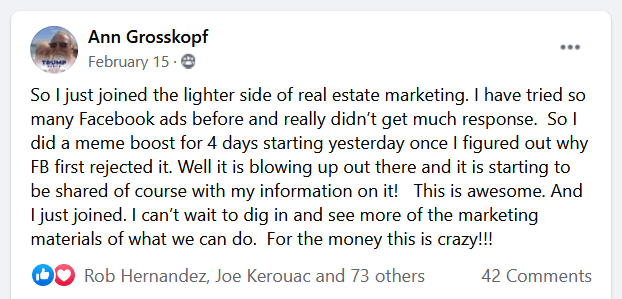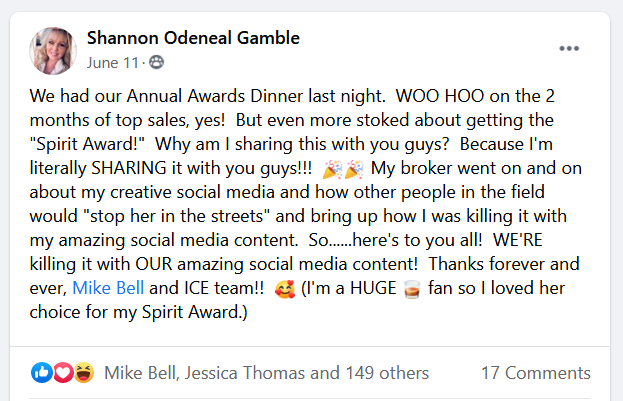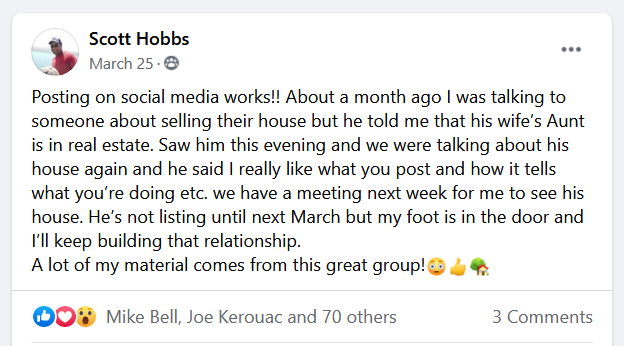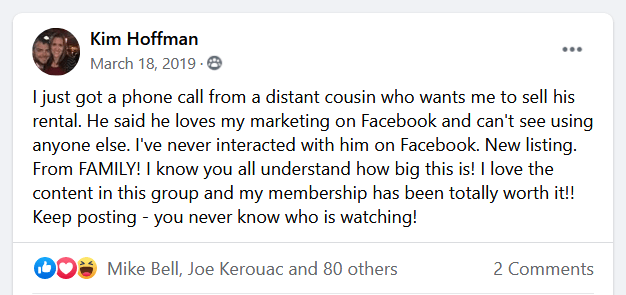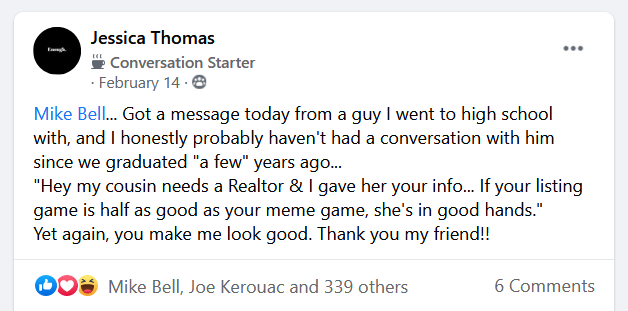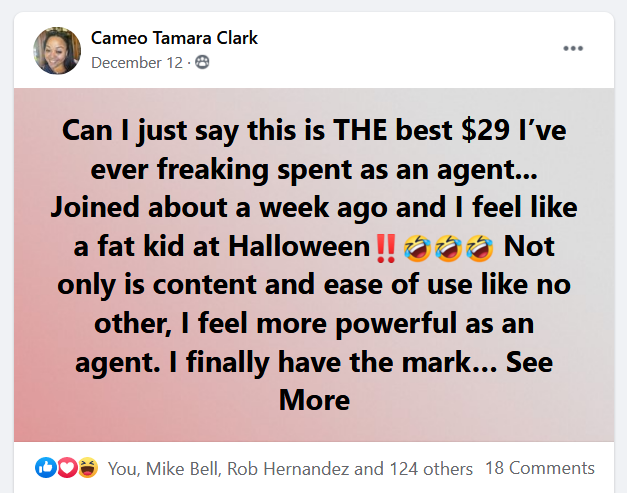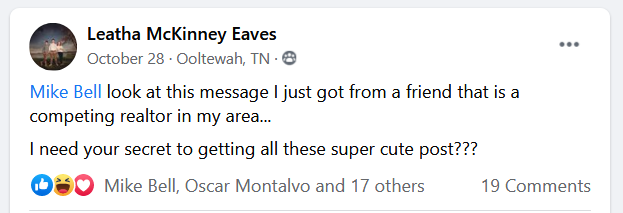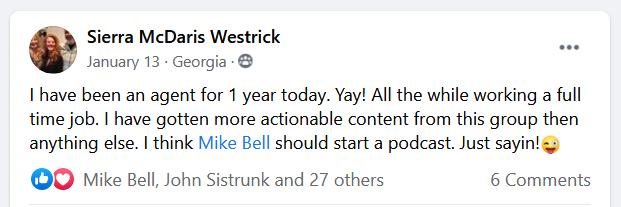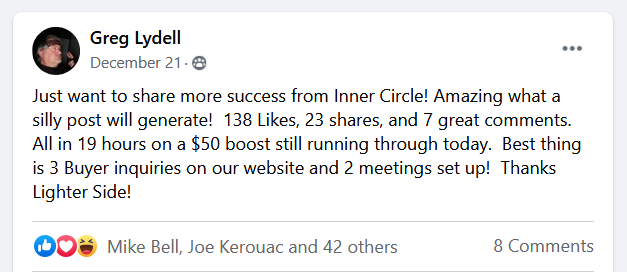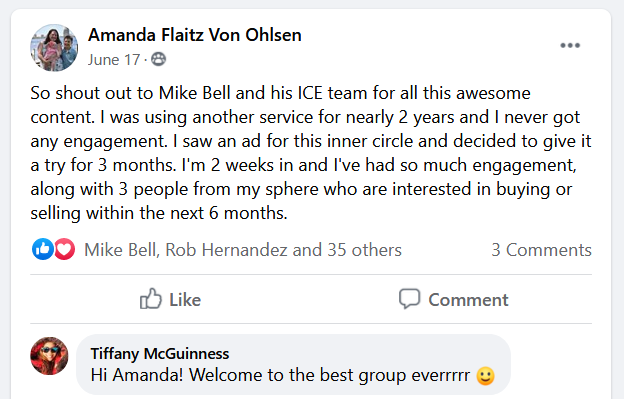
The Real Estate Agent’s Guide to Photographing Properties
Photograph by Nicolás García Photography is one of the most important aspects of a real estate listing. A property with stunning photos will generate more



Considering a real estate agent is the person you’re hiring to help you with what’s probably the largest purchase you’ll make, or asset you’ll sell, you should be concerned about whether or not you trust your agent.
But if you don’t trust real estate agents, you’re not alone. According to this Study Finds article, only 20% of people surveyed had a high level of trust in real estate agents.
To be fair, there are surely dishonest agents out there who have contributed to the distrust, but there are professionals in every industry who can’t be trusted. However, there are a lot more agents in the field who are highly trustworthy, and they take offense to being perceived this way.
Unfortunately, whether it’s deserved or not, distrust can get in the way of you and your agent having as good of a relationship as possible, and getting the best results on your sale or purchase. So let’s take a look at a few of the things people apparently think agents lie about the most, to give you some perspective, and to help you hire an agent you can trust to help you buy or sell a house.
So what exactly is it that makes people not trust agents? Is it just a general overall distrust? Or are there specific things that agents do to cause it?
According to this article on The Balance, there are 5 things real estate agents commonly lie about, which likely contribute to this distrust:
While there could certainly be other reasons beyond this list that some people have for not trusting agents, let’s take these five and use it as an opportunity to break each of them down a bit, so you can see where agents aren’t necessarily “lying” and how to avoid it hurting your trust in them.
They claim that agents often dance around the subject of how much experience they have by citing how long they’ve lived in an area, or past work experience, and don’t specifically state how long they’ve been an agent.
That isn’t untrue. Unfortunately, agents often feel like they need to avoid saying how long they’ve been in the business, because people feel they need to hire someone with many years of experience.
But just because one agent has been in the business for a long time, that doesn’t make them more trustworthy than a newer agent. While experience is certainly relevant for you to consider when hiring an agent, don’t confuse experience with trustworthiness.
The article also says that agents use the listings of other agents in their company to make it look like they listed them.
Similar to experience, agents often feel they need to look like they have a lot of listings in order for someone to hire them. But it isn’t that they’re claiming the listings you might see under their profile on their website are theirs; it’s just that real estate websites often promote all of the listings in their office — and even from other real estate offices — by using “Internet Data Exchange” (IDX) which populates all of the houses on the market under the “listings” tab. It might appear like they’re the agent’s listings, but if you read the fine print, the agent isn’t claiming that those are their own listings.
The reality is, there are only a few agents in most areas who do actually have a “lot” of listings. Does that mean they’re the only agents who can be trusted? No. An agent who only lists a few houses per year might be even more capable and trustworthy of selling your house than a listing powerhouse.
According to the article, agents who claim to be a specialist in a particular area or type of property are lying if they don’t have tons of experience in the niche.
But why can’t an agent decide they want to specialize in something and claim that? How will they get to the point of reaching enough experience to eventually claim they’re a specialist, and what’s the criteria needed to meet in order to do so? An agent claiming they specialize in something isn’t a lie. By definition, one can be a specialist by simply focusing and concentrating on a particular subject.
So if you come across an agent who says they specialize in condos in your town and you’re looking to buy or sell one, trust that they’ve decided to focus on them for whatever reason — even if they can’t demonstrate that those are the only type of properties they sell.
All real estate commissions are negotiable by law. But that doesn’t necessarily mean an agent is willing or able to accept a lower commission just because you want them to. You can always decline to work with an agent who won’t budge on their commission, and work with one who does, but that doesn’t mean the agent who wouldn’t budge is lying to you or not to be trusted.
It’s certainly possible that an agent could promise you they have buyers who’d be interested in your house as a ploy to get you to list your house with them, but it isn’t necessarily a lie if an agent claims to have buyers who they think would like your house.
Unfortunately, an agent can’t know for sure if one of their buyers will definitely like your house enough to make an offer; buyers have a mind of their own. Or perhaps they bought something else between the time they told you that and when you finally decided to list your house. There could be legitimate reasons behind why the buyers they claimed to have didn’t buy your house.
Ultimately, don’t choose an agent to list your house based upon whether or not they have a buyer for it, and this isn’t an issue. Hire the agent you trust the most to help protect your interests as a seller and get you the most money for your house.
Hopefully the above insights help to show how the perception that agents are lying and untrustworthy may just be a misperception. But it doesn’t hurt to be cautious when hiring someone to help you buy or sell such a large asset, since there’s always a chance you could stumble upon an agent who shouldn’t be trusted.
If you want to improve the odds of finding an agent you can trust, one of the best ways to do that is to work with an agent who you personally know. A family member or friend who’s an agent should be someone you can trust, so start your search there!
But if you don’t personally know an agent, the next best thing is to ask your friends and family for recommendations and referrals to agents they’ve worked with and trust.
Or, if you come across an agent you’re interested in hiring because you met them somewhere, or saw their marketing, just be open with them about any concerns you have regarding trust. An agent you can trust will gladly have an honest and open discussion about your concerns, and may even be glad you brought the topic up!
And finally, if you know an agent that you trust, make sure to tell your friends and family about him or her so they can enjoy the benefits of working with an agent they can trust.
The Takeaway:
If you don’t trust real estate agents, you’re not alone. According to a recent study, only 20% of people surveyed had a high level of trust in real estate agents. However, while there may be some dishonest agents, there are a lot more agents in the field who are highly trustworthy, and they take offense to being perceived this way.
In order to trust the agent you choose to work with, it helps if you understand the misperceptions many buyers and sellers have about things they think agents lie about, and hire an agent you personally know, or who comes highly recommended by people you trust.

(Shh, our secret)
Show your sphere your an expert. We have over 2100 articles covering every real estate topic your audience will love.
Position yourself as a real estate authority!
Real estate + topical events — the perfect match!
Become the bearer of good vibes!
Because hey, everyone loves to laugh!



Get our weekly email that makes communicating with your sphere on social actually enjoyable. Stay informed and entertained, for free.

Photograph by Nicolás García Photography is one of the most important aspects of a real estate listing. A property with stunning photos will generate more

In high school, your math teacher may have said something along the lines of, “You won’t have a calculator with you all the time.” Fast

The Internet has really leveled the playing field for real estate agents. Years ago you needed a hefty marketing budget to be able to get
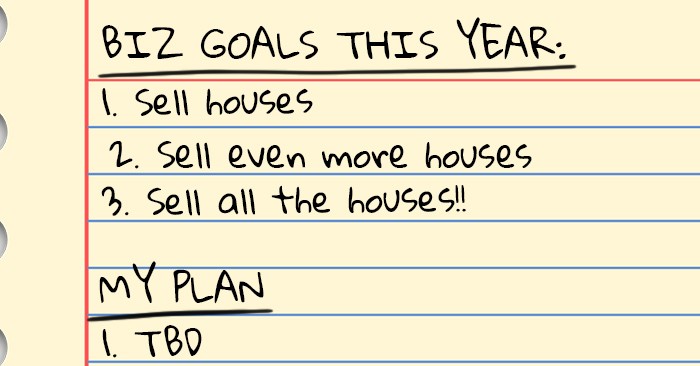
Raise your hand if you’ve at least mentally made a resolution to sell more houses in the coming year. Every year is a clean slate

Blogging is something many real estate agents struggle with. To begin with, you might wrestle with whether or not it’s even worth doing. Is blogging
Depending on your situation, it may not take the full 30 minutes.

This reset password link has expired. Check the latest email sent to you.

